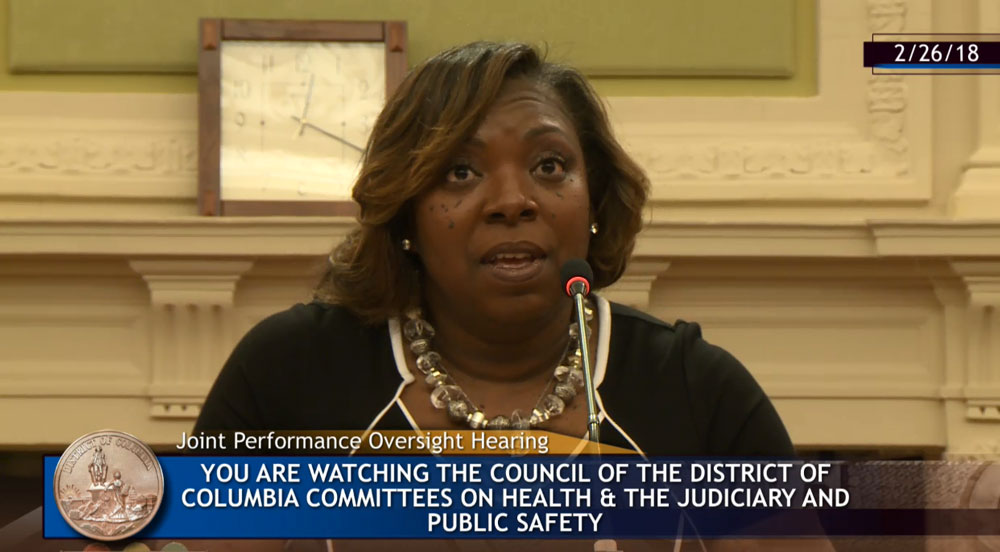A report released Feb. 26 by the Office of the D.C. Auditor and the Council for Court Excellence documents serious shortcomings in the D.C. Department of Behavioral Health, including instances in which staff without formal forensic training made decisions regarding patients’ competency to stand trial and their criminal responsibility for the charges they face.
Saint Elizabeths Hospital in Congress Heights, D.C.’s only inpatient public psychiatric facility, was a focal point of the Council for Court Excellence’s investigation. The hospital served as a federal public psychiatric facility from 1855 to 1987, when control was transferred to the District of Columbia. Today, one-third of inpatient beds are occupied by individuals with voluntary or civilly committed statuses. The other two-thirds are occupied by pre-trial patients, including those waiting to be evaluated for competency to stand trial, and post-trial patients, including those who have been declared not guilty by reason of insanity.
While it is considered best practice for psychologists and psychiatrists conducting forensic evaluations to have received specific forensic training, D.C. law does not require it. In fact, no formal forensic evaluation training and certification program exists within the District. The audit recommends D.C. Code be amended to mandate formal training for mental health care providers who will be performing forensic evaluations.
The Division of Forensic Services oversees the forensic work at Saint Elizabeths but does not have direct authority over its staff. The audit calls the management structure an “organizational quagmire” and says the division’s role at the hospital “was unclear to almost everyone with whom we spoke, including DBH staff.”
The report’s recommendations include centralizing that management structure and giving the division greater authority over a unified budget for its forensic program. Complicating matters, the Division of Forensic Services has faced funding shortages since its inception. In fiscal year 2017, $0 were allocated for inpatient services. This means the division has no financial control over the programs it oversees at Saint Elizabeths.
D.C. Auditor Kathleen Patterson, in a Feb. 23 interview with ABC7, emphasized the impact of the long waiting lists and slow services that plague Saint Elizabeths. Bed shortages at the hospital mean that some people must wait to receive their court-mandated evaluation. “The courts have been very concerned about this,” Patterson said.
This concern was echoed at the D.C. Council’s Department of Behavioral Health performance oversight hearing on Feb 26. As Ward 6 Councilmember Charles Allen recounted, a D.C. superior court judge in 2017 ordered Saint Elizabeths to explain in court why individuals with court orders to be transferred to to the hospital were being held at the D.C. jail instead.
A 2006 study from the Bureau of Justice Statistics found that more than half of all U.S. prison and jail inmates in 2005 had a mental-health problem, yet only around 30 percent of state prisoners and 20 percent of federal prisoners had received any mental-health treatment while in prison.
Because of capacity issues, Saint Elizabeths has struggled over the past few years to admit all those who have been ordered to undergo competency evaluation and restoration services, according to the testimony of report author Michael Hays. This has resulted in “an admissions waitlist causing defendants to remain incarcerated without receiving services,” Hays said, which “eventually delayed many defendants’ evaluations beyond the statutorily admissible time frame.”
Staff shortages are another issue. During a period of several weeks, while the Council for Court Excellence carried out its review, Hays said roughly one-quarter of full-time positions in the division were vacant. “Even if fully staffed, DFS would be unable to fulfill its responsibilities without overburdening staff,” he said. Hays referenced a finding that only three forensic-psychologist positions exist to perform more than 1,000 evaluations annually.
At the oversight hearing, DBH Director Tanya Royster claimed that mandating forensic training would only further limit the Department’s ability to hire qualified staff. She also pushed back against the idea that DBH is too overextended to initiate the pre-arrest diversion program that it has scheduled for rollout this year.
“As a newly created division,” Royster said, “we are proud that the work we have already initiated and planned is in line with many of the recommendations within the auditor’s report.”








